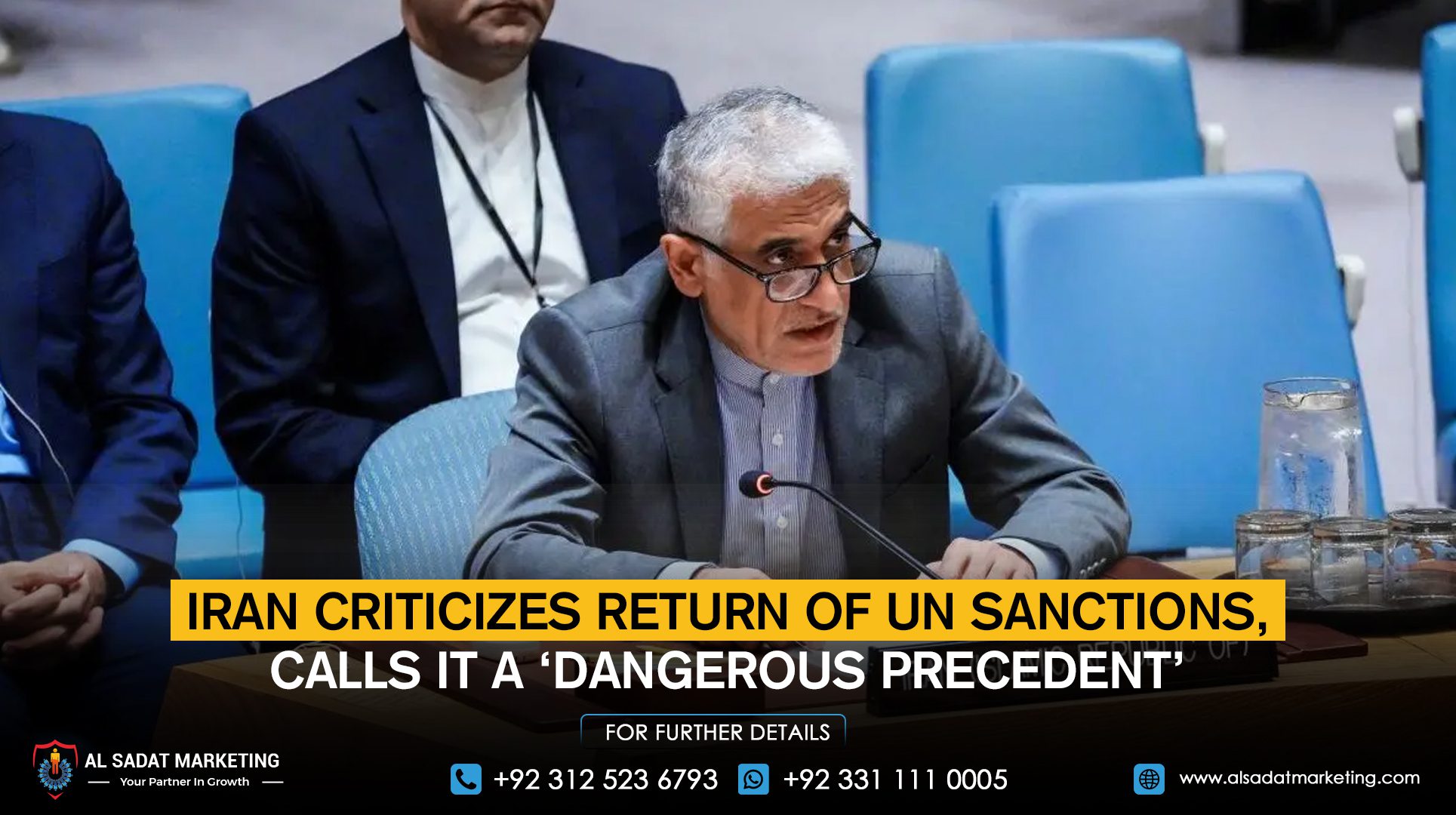Iran warned that the decision decreases confidence in the international order and criticized Western attempts to lift UN sanctions on Friday.
Following China’s and Russia’s unsuccessful attempt to postpone the snapback mechanism at the UN Security Council, the sanctions are scheduled to be renewed this weekend.
Restoring sanctions against Tehran is “legally void” and a “dangerous precedent,” Foreign Minister Abbas Araghchi said to the UN Security Council. He charged that the European trio of Britain, France, and Germany (E3) had chosen confrontation over negotiation, and that the United States had rejected diplomacy.
Araghchi urged the council president to declare the sanctions illegal, saying, “Iran will never respond to threats or pressure.” He cautioned that the council’s reputation would suffer if they were enforced.
The United Nations Security Council has rejected a Russian-Chinese draft resolution that sought to extend the 2015 nuclear deal and delay sanctions on Iran until 2026. The draft received only four votes in favor, nine against, and two abstentions.
Among those who opposed were the United States, the United Kingdom, France, Denmark, Greece, and Somalia. UK envoy Barbara Wood said the council had already completed “the necessary steps” under Resolution 2231, making the reimposition of sanctions automatic.
With the vote failing, all UN sanctions on Iran are set to return at 8 p.m. EDT on Saturday (0000 GMT). The measures will include a ban on uranium enrichment and reprocessing, an arms embargo, restrictions on ballistic missiles, a global asset freeze, and travel bans. Iran’s energy sector, already under strain, is expected to come under further pressure. The European Union is also expected to announce its own sanctions next week.
In response, Iranian President Masoud Pezeshkian said Tehran has no intention of leaving the Non-Proliferation Treaty and will not seek nuclear weapons. He emphasized that Iran is “fully prepared to be transparent” about its enriched uranium but criticized the International Atomic Energy Agency for what he called biased actions.
The US and European allies argue that Iran has failed to meet its nuclear obligations, while France stressed that sanctions “are not the end of diplomacy.” Iranian negotiator Abbas Araghchi countered that it was Washington that “betrayed diplomacy” and accused European states of abandoning dialogue.
Speaking at the UN General Assembly, Israeli Prime Minister Benjamin Netanyahu called for strong global action to prevent Iran from rebuilding its nuclear program, describing the sanctions as a necessary safeguard.
The return of sanctions is expected to further escalate tensions in the region, raising uncertainty over the future of nuclear talks with Iran.










